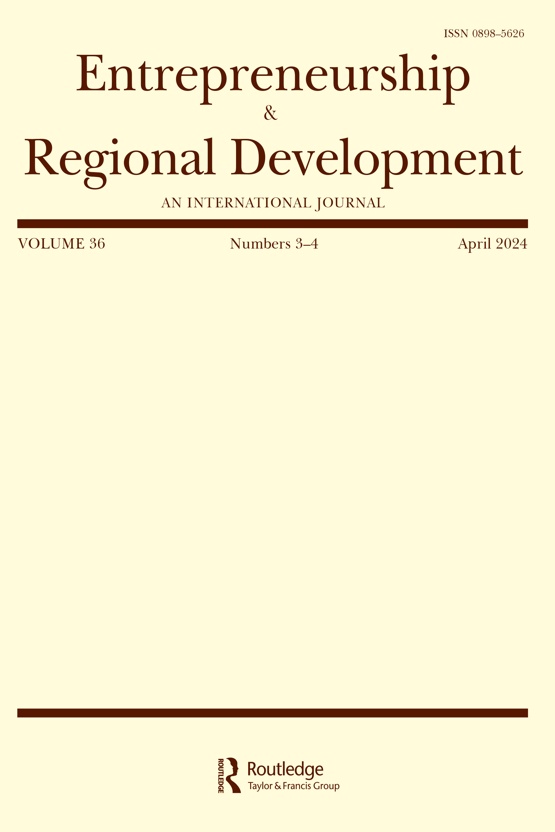研究如何定位中东欧女企业家:30年话语分析
IF 3.6
1区 经济学
Q2 BUSINESS
引用次数: 2
摘要
本文分析了中东欧地区女性创业研究是如何建构和定位女性企业家的。在统治该地区的社会主义政权下,创业是非法的,直到20世纪90年代初获得独立后才开始发展。因此,关于企业家精神,包括妇女企业家精神的研究对该区域来说有些新鲜。我们对这一领域现有研究的话语分析表明,尽管通往创业的历史路径不同,但西方关于女性创业的研究中存在的规范性前提也普遍存在于中东欧国家的学术研究中。这些规范性前提对创业政策和学术界施加了主导结构和方法。话语分析确定了妇女企业家的五种定位结构,所有这些结构都源于妇女(基本上)没有足够的创业能力的假设。我们讨论了产生这些结果的话语实践,并为中东欧女性创业研究提出了前进的方向。本文章由计算机程序翻译,如有差异,请以英文原文为准。
How research positions Central and Eastern European women entrepreneurs: A 30-year discourse analysis
ABSTRACT This paper analyses how research on women’s entrepreneurship conducted in Central and Eastern Europe (CEE) constructs and positions women entrepreneurs. Entrepreneurship was illegal under the socialist regimes that governed this area and only began to develop after independence was obtained in the early 1990s. Consequently, research on entrepreneurship, including women’s entrepreneurship, is somewhat new to the region. Our discourse analysis of existing research in this area reveals that, despite different historical pathways towards entrepreneurship, normative premises that exist in Western studies on women’s entrepreneurship also prevail in scholarship produced in CEE. These normative premises impose dominant constructs and methodologies on entrepreneurship policy and the scholarly community. The discourse analysis identified five positioning constructs of women entrepreneurs, all of which stem from the assumption that women are (essentially) inadequately equipped for entrepreneurship. We discuss the discursive practices that produce these results and suggest ways forward for research on women’s entrepreneurship in CEE.
求助全文
通过发布文献求助,成功后即可免费获取论文全文。
去求助
来源期刊
CiteScore
7.90
自引率
10.70%
发文量
52
期刊介绍:
Entrepreneurship and Regional Development is unique in that it addresses the central factors in economic development - entrepreneurial vitality and innovation - as local and regional phenomena. It provides a multi-disciplinary forum for researchers and practitioners in the field of entrepreneurship and small firm development and for those studying and developing the local and regional context in which entrepreneurs emerge, innovate and establish the new economic activities which drive economic growth and create new economic wealth and employment. The Journal focuses on the diverse and complex characteristics of local and regional economies which lead to entrepreneurial vitality and endow the large and small firms within them with international competitiveness.

 求助内容:
求助内容: 应助结果提醒方式:
应助结果提醒方式:


